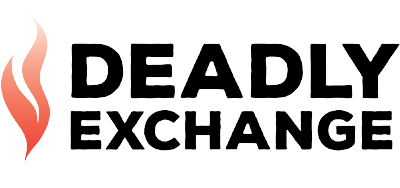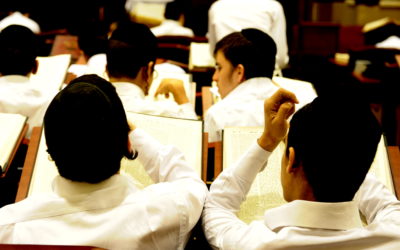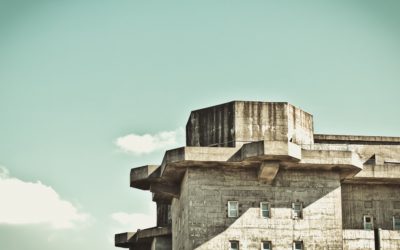By a Synagogue Board Member
Jews and Jewish spaces like JCCs and synagogues are on heightened alert – triggered by the increased spate of bomb threats, cemetery desecrations and visibility of white nationalists and neo-nazi’s both on the streets and in government.
We don’t want to create a bigger “panic button” for our congregants but rather a holistic safety plan aligned with our values of justice and inclusion.
As synagogue leaders how can we address concerns about safety and security – particularly during the High Holidays when so many more people are gathered visibly together? There is no one right way – but our leadership is clear there’s a wrong way – and that would be to make decisions purely out of reactionary fear.
Around the US, law enforcement receives enormous amounts of money, weapons, and training, to combat “terrorism” – a term that is often code for Arab or Muslim even though far more attacks come from people who are Christian and/or white. In our congregation, many of our members oppose the Israeli Occupation and subsequently receive the most direct threats and violence from other Jews.
This ‘coloring’ of the concept of terrorism is no doubt encouraged by the deepening relationship between US police forces and private security and the Israeli security apparatus which have found a lucrative market for the literal and strategic tools they use to suppress Palestinian resistance to the Occupation.
The adage, “when you have a hammer, everything looks like a nail” applies here. Jewish institutions have regular meetings with police and intelligence groups to hear about potential threats and ways they can collaborate. Notably, the definition of threats is generally limited to anti-semitic violence, and the range of response is limited to heavy-handed public and private policing.
As we made our High Holiday plans this year, we decided first and foremost that our vision of safety and security could not depend on private or public policing, but rather on continuing to build internal strengths and interdependent relationships with our neighbors and community. We considered what a “threat” might look like, including but also beyond a physical violent attack.
Safety for congregants means safety for all of our congregants.
Not only do we believe that public or private police won’t keep us safe, we decided that these kinds of security measures could very possibly hurt our community in grave ways. Our congregants include people of color, trans and gender non-conforming folk, queers and their families, peace activists and others who have all been targets of police and state violence. Our synagogue President’s family and community was targeted by police and the state throughout childhood. The risk to individuals and the fabric of our congregation outweighs any potential benefit.
Here’s what we’ve decided to do. Many other shuls may already have done this – but many haven’t:
- Focus on a building safety plan. And making sure we have people trained on how to enact it.
- Identify who is in charge of calling for an evacuation in case of a bomb threat, fire, etc.,
- Identify the person to call emergency services (and not just 911 – we don’t want police responding to a medical call if we can avoid it) and liaise with them if needed.
- Plan what we do after an evacuation (like making sure we have pre-printed a list of registrants and their contact info so we can account for people/follow up.)
- Have trained de-escalators who will take lead on a disruption. Our chazzan will lead the congregation in song if there’s a disruption and if needed the Rabbi or Board president will remind those gathered that there is a plan and they may stay in their congregant role as we respond.
- We will remind people several times before and during Yom Kippur services about pekuach nefesh – the Jewish legal principle that insists you not fast if you would come to harm, and plan with congregants who are medical professionals how to respond in a medical emergency.
- Above all, we will have a small team that knows they need to take lead in an emergency and has some plans for response, and communicating in words and actions to congregants that we have that team looking out them is most important.
None of this is ideal.
We came to this plan as a handful of volunteer leaders without time to have a meaningful dialogue with our congregation. We intend to do so however, so that we may continue to improve our plans and skills.
Local non-Jewish religious communities have also offered their members to stand outside the synagogue during High Holidays to provide a physical marker and some kind of deterrent to ill-wishers. We declined due to the short time before the High Holidays, but we are thinking about how we could build trust and do trainings in the future so insure these allies would effectively uphold our safety goals, and figure out how we can also stand with them when needed.
That’s not to say our calculus won’t change in the future – antisemitic and fascist violence is real – but so are medical emergencies during services (especially when fasting), so are building fires, so is fear-mongering and trauma-triggering and so many other things in addition to a violent attack.
The work of keeping our community safe can never be unwound from the work of our spiritual and ritual lives.
Here’s to the day when Jewish organizations are meeting regularly and getting support on safety and security from well funded anti-racist groups, fire safety experts, health care systems, trauma experts and community-building and interfaith organizations.
READ MORE
Imagining Abolition with Haredim
By Ben Ratskoff Because Haredi communities have historically detached their work in Jewish law from the carceral Israeli state, their perspectives on incarceration seem worth exploring in order to imagine alternative political visions of...
Abolishing Prisons and Ending Racism
How to think and what to do about race in order to abolish prisons By Anonymous In 2010, I had a 4-month long psychotic episode during which time I broke several laws, including public disturbance, shoplifting, stalking and whatever it is...
Imagining the World to Come: Call for Submissions
How do we achieve real safety?




